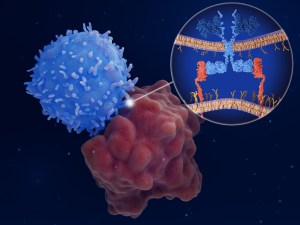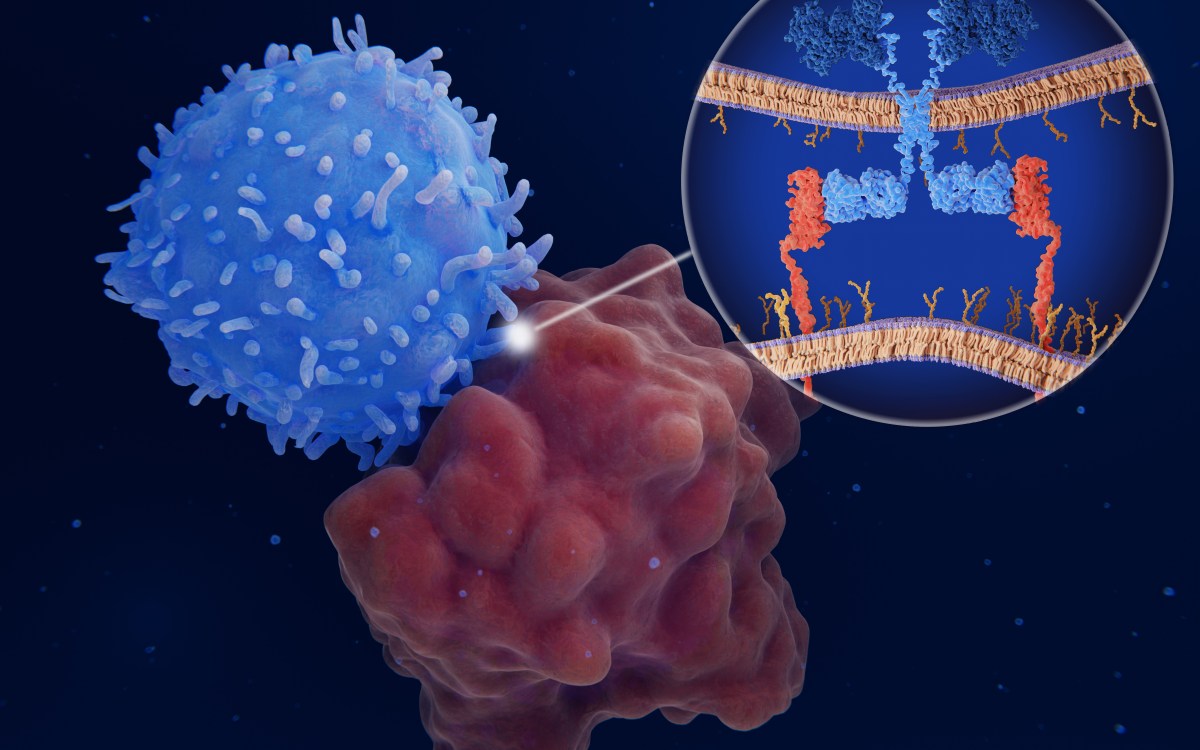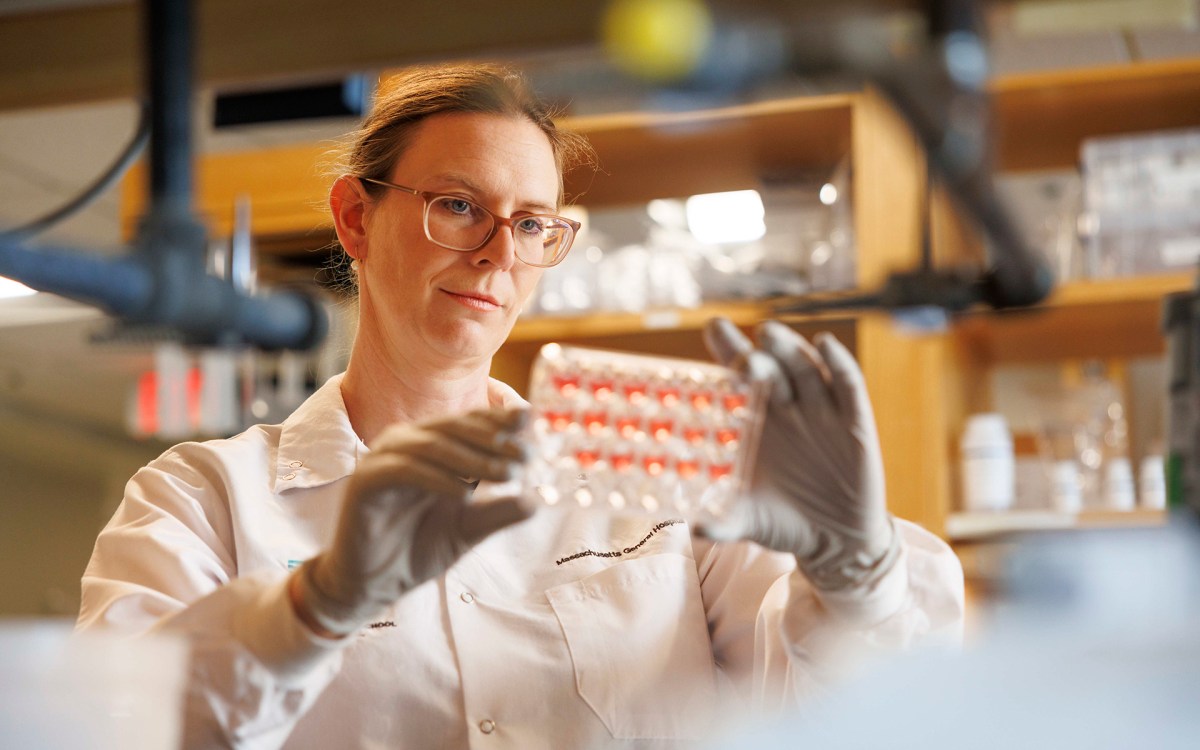Study suggests surprising cause of arthritis
Certain carbohydrates fingered as trigger of autoimmune response
Julia Ying Wang, a Harvard Medical School assistant professor of medicine at Brigham and Women’s Hospital, was exploring whether a particular class of carbohydrates called glycosaminoglycans (GAGs) trigger an immune response in the body. GAGs are a major component of joint cartilage, joint fluid, connective tissue, and skin. In collaboration with Michael Roehrl, a research assistant in the Department of Biological Chemistry and Molecular Pharmacology, Wang studied the effect of GAGs on mice. They found that the animals experienced arthritic symptoms, including swelling, inflammation, and joint damage, about 30 days after injection with the carbohydrates. “This study shows that rheumatoid arthritis may result from the body’s mishandling of its own carbohydrates that under normal circumstances would not be interpreted as a threat,” Wang said. Wang said subsequent research would most likely focus on the development of drugs aimed at stopping the growth, expansion, or adhesion of immune cells that react to glycosaminoglycans. Wang presented the research Aug. 21, 2002, at the American Chemical Society’s national meeting in Boston.





